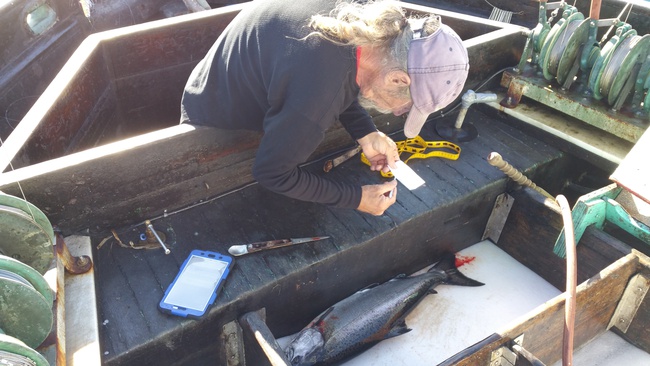At Resource Data, we've found that many ocean research surveys require large budgets because they are using custom mobile and web apps to collect data. On top of building the technology, researchers then need to train reliable data collectors. In many cases, these collectors may be reluctant to use the new technology that was just built. All this is just a means to an end, collecting reliable data, and many of these surveys collect similar data with similar methods. There's a better way.
The SurveyExchange platform would bring research costs down by orders of magnitude by providing customizable surveys and a marketplace of peer-verified data collectors.
The platform would allow researchers to define their survey (
surveyexchange.net) through form data entry, GPS information, barometric data, and photos. Basically anything an average mobile device is capable of collecting. They can also enter instructions and workflows to ensure quality data.
Once a survey is defined, researchers can then hand-pick data collectors from the marketplace, or post their survey for open enrollment. This would operate similarly to freelancing sites like Upwork. Researchers can choose from various payment models, such as paying for discrete pieces of data, or a data collector's time out in the field.
When a data collector is selected, the survey is downloaded onto the collector's device and guides them through collecting the right data for the survey. This could be as simple as passively boating through a certain area or taking photos at specified Lat/Lon coordinates. Or it could be as complex as logging any fish caught and delivering samples and tags to a tag lab.
Anyone can sign up to be a data collector. Their device model and location will be verified and its capabilities attached to their profile for searching. They can browse open surveys and define what kinds of surveys they'd like to participate in. Data collector quality will be assured by community reviews, a battle-tested technique that gives researchers confidence when choosing participants in their survey. Researchers will also be reviewed so data collectors will know more about who they'll be working for.
Resource Data has also found that custom data collection solutions often require a portal component, where internal and external users need to view and report on the data. With our experience across many different projects, we would be able to implement a visualization and reporting product that would serve most use cases. Features like these could be part of a freemium revenue model to keep SurveyExchange supported and maintained.
Researchers will also have the chance to open-source their data sets and share them on the site in real time as they are collected.
The data sets provided to the innovators in this challenge are profoundly important, but they're not enough. In order to address the problems of climate change and sustainability in our oceans, we need a more real-time solution for researchers. New questions are being posed every day, but it takes months or years for many of them to even begin being answered due to the technological, bureaucratic, and financial barriers. SurveyExchange would vastly minimize all three.
This app is designed to bring down the barriers to entry for data collection rather than make use of existing data. It's a problem that Resource Data is uniquely positioned to solve, having built many of these custom data collection solutions and seeing the ways a single platform could accommodate many different researchers.
With less money going to technology firms and consultants, there will be more available for the actual fishing communities where these studies are typically done. Fishermen could be making good wages from data collection alone, which would offer some stability of income while the fishing seasons wax and wane.
The data collected, and its new immediacy, will also help remove the uncertainty of the seasons in general. We will better understand fish populations and what affects their numbers and locations. This data will be directly beneficial to the smaller fishing communities and the industry as a whole.
As we see our environment change more quickly and more dramatically, there will be no way to respond in time with current survey methods. We will always be playing from behind with old data, which severely hampers efforts to curtail or predict the effects of climate change. Accelerating our data collection abilities by directly connecting researchers to crowdsourced data collectors will have cascading impacts through the science community, the economy, and policy making.
